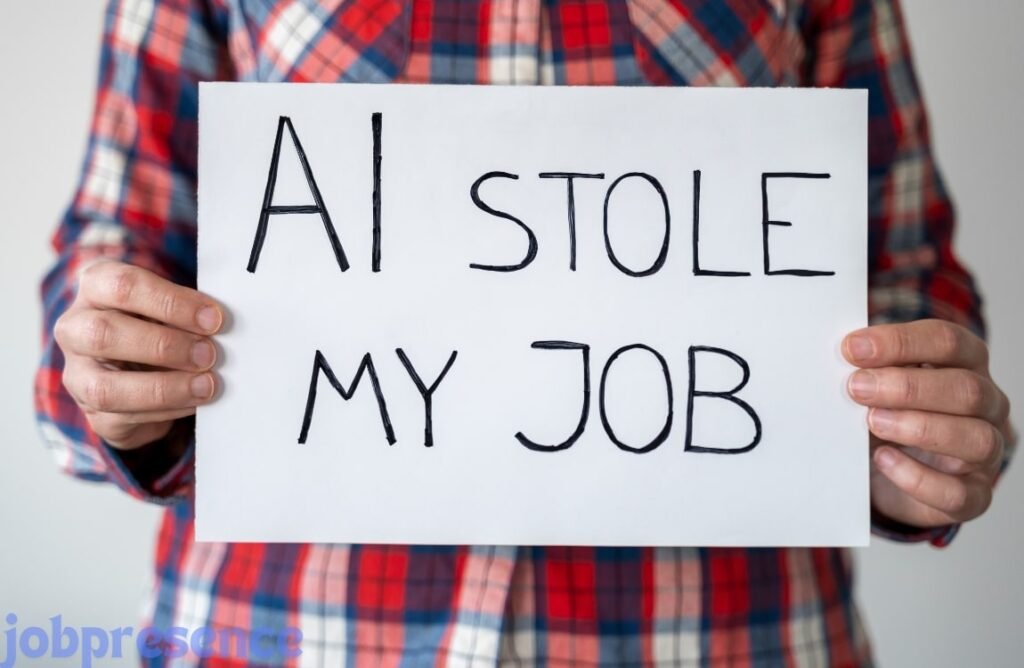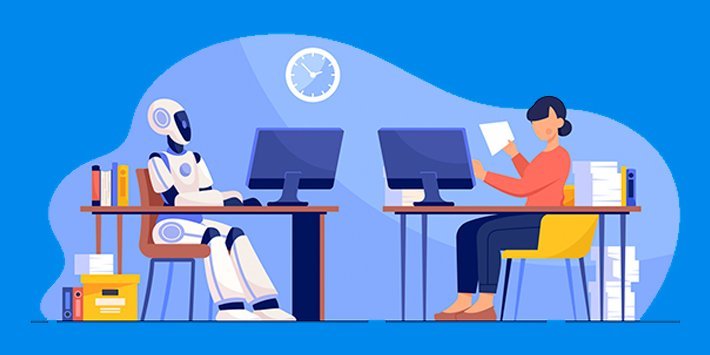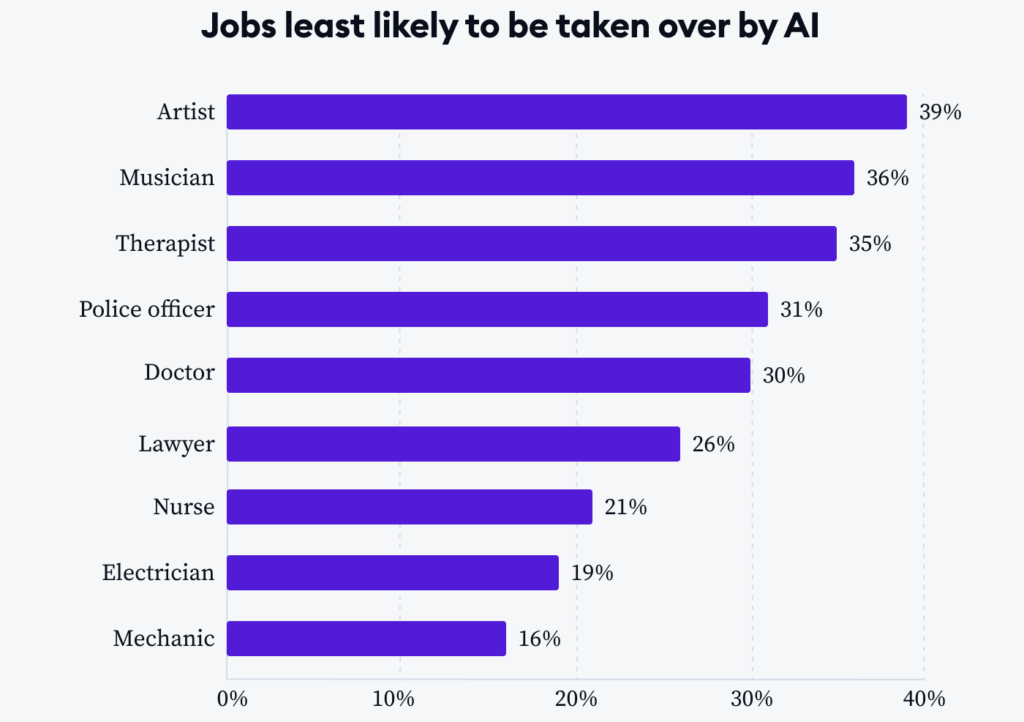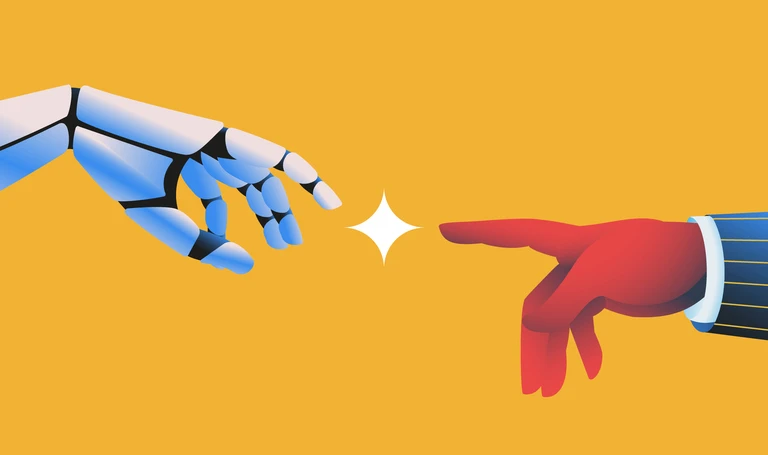Jobs That AI Can’t Replace
As artificial intelligence (AI) advances, many industries undergo significant transformations, with some jobs becoming automated. However, some roles require distinctly human qualities that AI cannot replicate. These include creativity, Empathy, and complex decision-making—where humans naturally excel. This article explores the jobs that remain beyond the reach of AI and why they are essential.
The Human Advantage Over AI
AI is highly efficient at processing data and managing repetitive tasks. However, it cannot think creatively, understand emotions, and make nuanced decisions. These human traits are crucial in many professions, ensuring that specific jobs remain beyond AI’s capabilities.
Why Some Jobs Are Safe from AI
While AI revolutionizes various sectors, some roles still require uniquely human skills. These include creativity and Empathy, which are integral to many jobs. Dr. Kate Crawford from Microsoft notes, “AI can handle data, but it cannot replace the human touch needed in many roles.”


Creative Jobs: The AI Challenge
Creativity Beyond Automation
Creativity involves the generation of unique ideas and personal expression. The Journal of Creative Behavior study states, “AI can produce work based on patterns, but it lacks the capacity for true originality, something inherently human.” As author Elizabeth Gilbert suggests, “Creativity is a human trait, rooted in the soul, which AI cannot replicate.”
Emotional Connection in Art
Art resonates with people because it reflects the artist’s emotions. Art critic Jerry Saltz observes, “AI can create art, but it cannot imbue it with the emotional depth that comes from human experience.”
Complex Decision-Making: The Role of Human Intuition
AI’s Limits in Complex Decisions
While AI excels at number-crunching and data analysis, it needs help with decisions that require judgment, ethical considerations, and intuition. Professionals such as doctors, judges, and business leaders often face situations that demand a balance of multiple factors, where human insight is indispensable.
Healthcare: The Importance of Empathy
AI can assist with diagnostics and treatment planning in healthcare, but it lacks the Empathy and compassion that patients need. Building trust and understanding patients’ unique needs are critical aspects of care that only humans can provide.
Jobs Requiring a Human Touch
The Importance of Empathy in Care
Roles like social work, therapy, and caregiving are deeply rooted in understanding and responding to human emotions. These jobs require Empathy, compassion, and the ability to connect with others personally—qualities that AI cannot replicate.
Social Work and Counseling
Social workers and counsellors deal with complex human emotions and social dynamics. They provide support and guidance based on human experience and make personal connections that AI cannot replace.


High Social Interaction: The Value of Human Connection
Teaching and Education
Teachers do more than impart knowledge—they inspire, mentor, and guide students. The relationship between a teacher and student is vital for effective learning, and this human interaction is something AI cannot replicate. While AI tools can assist in education, the role of a teacher remains irreplaceable.
Sales and Customer Relations
Building trust and understanding customer needs are crucial in sales and customer relations. These roles depend on personal interaction, negotiation, and emotional intelligence—areas where humans excel and AI cannot match.
Roles Requiring Human Intuition
Entrepreneurship and Innovation
Entrepreneurs rely on intuition, creativity, and the ability to take risks. They adapt to changing circumstances and innovate in ways that AI cannot predict. The entrepreneurial spirit is a uniquely human trait that drives growth and ensures that this field will continue to be dominated by people.
Emergency Responders
First responders, such as firefighters and paramedics, must make quick decisions in high-pressure situations. These decisions often involve assessing risks and making judgment calls based on limited information, where human intuition and experience are crucial.
Ethical Considerations in AI’s Use
Ethics in the Workplace
As AI becomes more integrated into the workplace, ethical considerations grow increasingly important. Jobs focused on ethics, such as compliance officers and human rights advocates, are critical in ensuring AI is used responsibly. These professionals navigate moral questions and protect human dignity in a way that AI cannot.
Human Rights and AI
AI has the potential to impact human rights significantly. Professionals working in this area must address these challenges and ensure AI is used to benefit society without causing harm.


Case Study 1: Creativity in the Arts
Background:
- AI tools can generate art but often lack the emotional depth of human-created works.
Objective:
- Compare AI-generated art with human-created art in terms of originality and emotional impact.
Method:
- Audience responses to AI and human-created art were analyzed through surveys and focus groups.
Findings:
- Human-created art consistently received higher ratings for originality and emotional impact than AI-generated art. That highlights the unique ability of human creators to infuse their work with personal expression and emotional depth, aspects that AI still struggles to replicate effectively.
Expert Opinions:
- Elizabeth Gilbert commented, “Creativity is a uniquely human quality, something AI can assist with, but not replicate.”
Conclusion:
- While AI can generate art, it cannot match human work’s genuine creativity and emotional resonance.


Case Study 2: Empathy in Healthcare
Background:
- AI tools assist with medical diagnoses but cannot provide the empathy and personalized care patients require.
Objective:
- Evaluate AI tools’ effectiveness compared to human healthcare providers in delivering empathetic care and patient satisfaction.
Method:
- Patients were treated in two groups: one using AI tools and the other focusing on Empathy and personal interaction.
Findings:
- Patients receiving care from human providers focusing on Empathy reported higher satisfaction and felt more supported.
Expert Opinions:
- Dr. Patricia Benner, a nurse educator, emphasized, “Empathy in healthcare is fundamental. AI can assist with tasks, but it cannot replace the human connection that fosters trust and understanding.”
Conclusion: The Unique Value of Human Work
As AI continues to evolve and reshape the job market, specific roles will always require uniquely human qualities such as creativity, Empathy, and intuition. These jobs highlight AI’s limitations and emphasize humans’ distinctive value in the workplace. Moving forward, it is essential to recognize and preserve the roles that underscore our unique humanity.











